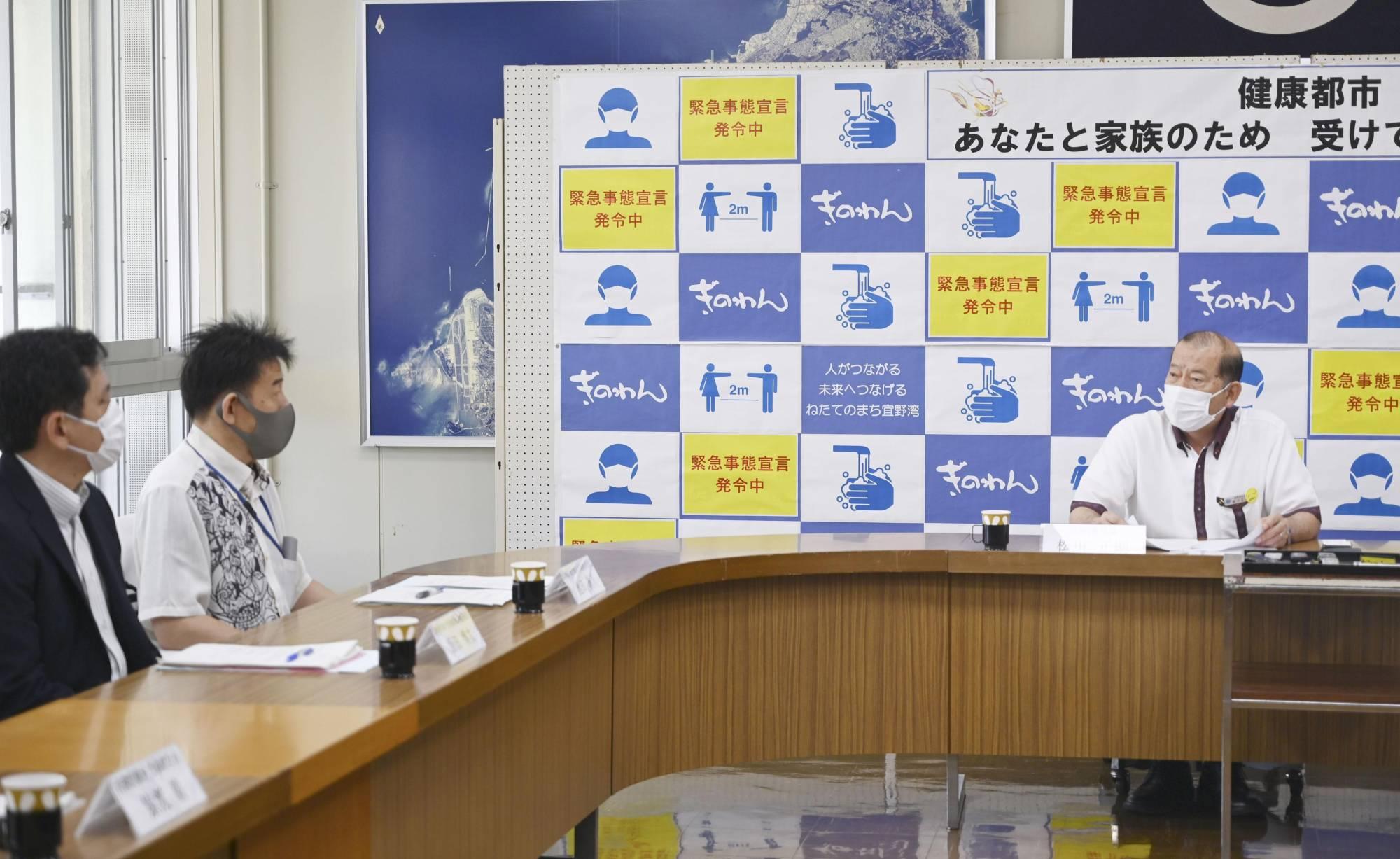Japan to dispose of contaminated water at U.S. military base in Okinawa
The Japanese government has agreed with the U.S. government to dispose of contaminated water stored at the U.S. Marine Corps’ Air Station Futenma in Ginowan, Okinawa Prefecture, Japan’s Defense Ministry said Friday.
Japan’s Defense Ministry will shoulder the estimated ¥92 million cost of disposing the water containing perfluorooctanesulfonic acid, a toxic substance known as PFOS.
PFOS had been used widely, including in fire-extinguishing foam. But Japan banned the import and manufacture of PFOS in April 2010 due in part to its cancer-causing properties.
According to the U.S. side, 360,000 liters of water containing PFOS are kept in a storage tank beneath a hangar at the Futenma base.
If rainwater flows into the underground tank, the stored water could overflow.
On Aug. 26, the U.S. military released some of the water into a public sewage line without prior authorization, prompting the Japanese government to lodge a protest over the discharge.
The Japanese and U.S. governments also agreed to discuss repairing the hangar to prevent rainwater flows into the tank.
The Japanese government has agreed with the U.S. government to dispose of contaminated water stored at the U.S. Marine Corps’ Air Station Futenma in Ginowan, Okinawa Prefecture, Japan’s Defense Ministry said Friday.
Japan’s Defense Ministry will shoulder the estimated ¥92 million cost of disposing the water containing perfluorooctanesulfonic acid, a toxic substance known as PFOS.
PFOS had been used widely, including in fire-extinguishing foam. But Japan banned the import and manufacture of PFOS in April 2010 due in part to its cancer-causing properties.
According to the U.S. side, 360,000 liters of water containing PFOS are kept in a storage tank beneath a hangar at the Futenma base.
If rainwater flows into the underground tank, the stored water could overflow.
On Aug. 26, the U.S. military released some of the water into a public sewage line without prior authorization, prompting the Japanese government to lodge a protest over the discharge.
The Japanese and U.S. governments also agreed to discuss repairing the hangar to prevent rainwater flows into the tank.
Japan to dispose of contaminated water at U.S. military base in Okinawa
The Japanese government has agreed with the U.S. government to dispose of contaminated water stored at the U.S. Marine Corps’ Air Station Futenma in Ginowan, Okinawa Prefecture, Japan’s Defense Ministry said Friday.
Japan’s Defense Ministry will shoulder the estimated ¥92 million cost of disposing the water containing perfluorooctanesulfonic acid, a toxic substance known as PFOS.
PFOS had been used widely, including in fire-extinguishing foam. But Japan banned the import and manufacture of PFOS in April 2010 due in part to its cancer-causing properties.
According to the U.S. side, 360,000 liters of water containing PFOS are kept in a storage tank beneath a hangar at the Futenma base.
If rainwater flows into the underground tank, the stored water could overflow.
On Aug. 26, the U.S. military released some of the water into a public sewage line without prior authorization, prompting the Japanese government to lodge a protest over the discharge.
The Japanese and U.S. governments also agreed to discuss repairing the hangar to prevent rainwater flows into the tank.
0 Comentários
0 Compartilhamentos
0 Anterior




